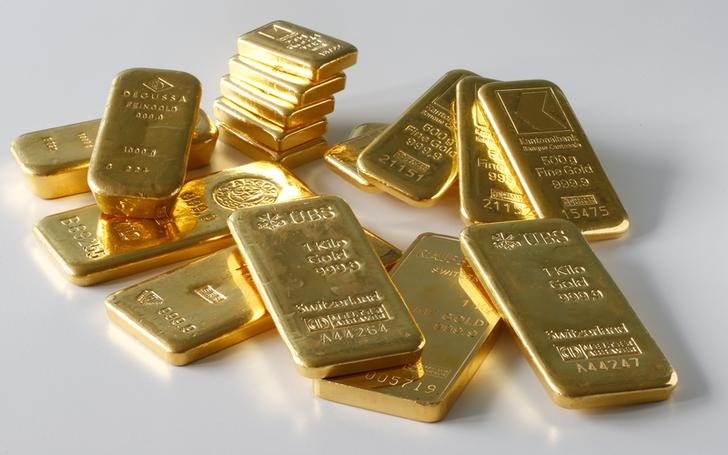Investing.com — Gold prices edged lower on Monday, extending last week’s downtrend as fears of slowing economic growth and high interest rates saw safe haven demand being redirected toward the dollar.
Focus this week is now on more cues from a string of Federal Reserve speakers this week, most notably on Friday.
Gold retreated sharply from record highs over the past week as traders locked in recent profits, and also trimmed expectations that the Fed will cut interest rates this year.
fell less than 0.1% to $2,009.99 an ounce, while fell 0.3% to $2,014.60 an ounce by 20:01 ET (00:01 GMT). The yellow metal is now close to testing the $2,000 support level after losing 0.3% last week.
Signs of deteriorating economic conditions in the U.S. continued to trickle in, with data on Friday showing that worsened in May, as inflation remained sticky and as the job market slowed.
A slew of , and readings are due this week, and are expected to shed more light on the U.S. economy. The Fed has warned of a mild recession this year.
Concerns over a U.S. debt default, amid continued sparring among policymakers over raising the debt ceiling, also came as a source of anxiety for markets, as did renewed fears of a U.S. banking collapse.
While the two factors had spurred strong safe haven demand for gold, traders unwound this trend over the past week amid . This in turn pushed up the , helping the greenback log its best week since September.
High interest rates push up the opportunity cost of holding non-yielding assets – a trend that battered gold through 2022.
Other precious metals crept higher on Monday, but were nursing steep losses over the past week. rose 0.3%, while added 0.1%.
A rout in industrial metals also appeared to be set to continue, as copper prices retreated further on Monday after sharp declines last week.
fell 0.1% to $3.7263 a pound after losing nearly 4% last week – their worst drop since November.
Signs of a cooling economic rebound in China rattled copper prices last week, as markets scaled back their expectations for commodity demand this year. While other industrial metals, such as nickel and iron ore also logged steep losses, copper was the worst hit, given that China is the world’s largest importer of the red metal.
Read the full article here
